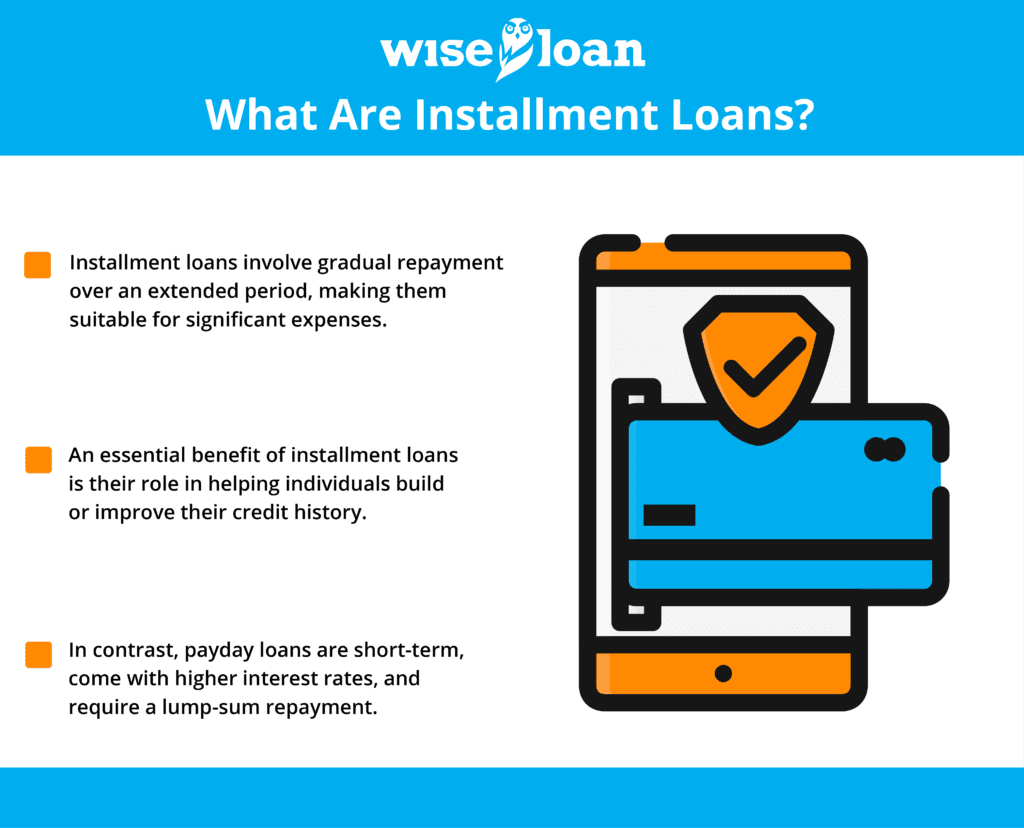Understanding Installment Loans
An installment loan, in essence, is a financial arrangement where you borrow a sum of money and then repay it gradually over time through a fixed number of scheduled payments. These payments encompass both the principal amount borrowed and the accrued interest. Typically, installment loans may be secured by the borrower’s personal assets or the product purchased with the loan. They are commonly utilized for substantial expenses that cannot be settled in one go, such as acquiring a vehicle, a house, or financing a college education.
Distinguishing Installment Loans from Payday Loans
It’s essential to distinguish installment loans from payday loans, as they serve different purposes and have distinct characteristics. Payday loans are usually short-term, come with higher interest rates, and necessitate repayment in a lump sum, typically on the borrower’s next payday. In contrast, installment loans have a more extended repayment period, spanning several months to even years, and require evenly spaced payments throughout the loan’s duration.

Building Credit Through Installment Loans
One notable advantage of installment loans is their potential to assist individuals with bad credit or no credit history in building a positive credit profile. How does this work? When you make multiple on-time payments over an extended period, it establishes a solid repayment history. This history can be reported to credit bureaus, contributing to the improvement of your credit score.
Understanding the Structure of Installment Loans
The simplicity of installment loans lies in their predictability. Once the loan is set up, there are minimal changes to contend with. You’ll know precisely how much you need to allocate each month for repayment. Moreover, you have the flexibility to expedite the loan payoff by making larger or additional payments. This can ultimately reduce both your future monthly installments and the total interest paid. However, it’s worth noting that in most cases, to recalibrate your monthly payments (a process known as a “recast”), you’ll need to request this adjustment from the lender. This practice is more commonly seen in mortgage loans.
The Responsibility of Borrowing
A crucial caveat when considering installment loans is the importance of borrowing responsibly. It’s imperative to assess your financial capabilities carefully and only commit to a loan if it aligns with your budget and repayment capacity. Responsible borrowing entails prudent budgeting and steadfast commitment to meeting your monthly obligations. Only pursue an installment loan if it genuinely suits your financial situation and goals.
The recommendations contained in this article are designed for informational purposes only. Essential Lending DBA Wise Loan does not guarantee the accuracy of the information provided in this article; is not responsible for any errors, omissions, or misrepresentations; and is not responsible for the consequences of any decisions or actions taken as a result of the information provided above.
More information on Installment Loans and how they work in your state:











